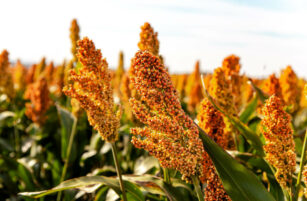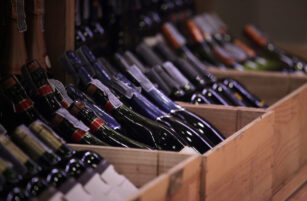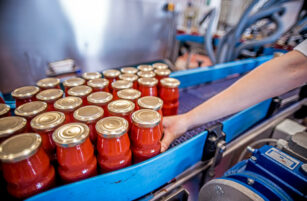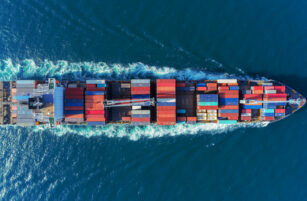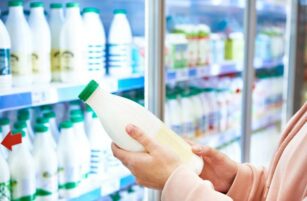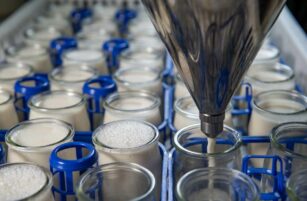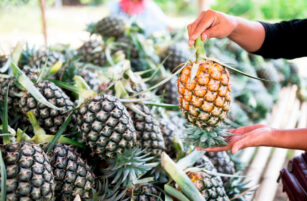Insight Focus
- An unusually high number of elections are set to take place in 2024.
- Food policies are likely to be in the spotlight for candidates.
- We take a look at the countries that are heading to the polls.
In 2024, a huge number of major political events are scheduled to take place. Local, general and presidential elections around the world could create uncertainty in some countries and regions, and food security is bound to be high on the agenda in many cases. Here is an overview of the elections taking place in 2024 and how they may impact food markets.
US
Perhaps the most avidly watched election next year will be the US presidential elections, in which current president Joe Biden will probably face off against former president Donald Trump. A year ahead of the election, the outcome is still too close to call but concerns over the state of the economy could swing the vote in Trump’s favour.
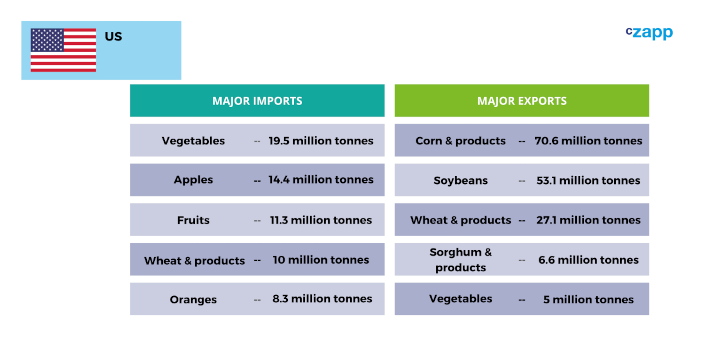
During his previous administration, Trump implemented a slew of protectionist measures. Many expect that, if he wins in 2024, he will double down on his tariffs. Some reports say he is considering a levy of 10% on all products entering the US. As a major food importer, this would have huge impacts on food supply chains around the world.
Joe Biden on the other hand, has prioritised climate policies in agriculture, which may not be overly popular with the farming industry, which tends to be conservative. One policy Biden’s government has rolled out pays farmers to try green practices rather than penalising them with carbon taxes.
But farmers have been calling on the government to prioritise small agribusinesses instead of favouring the major players. This could involve more scrutiny on major food processors and producers and there could be changes to the way meat processors, poultry conglomerates and seed and fertilizer companies interact with farmers.
European Union
Elections for the European Parliament will take place in 2024 and, according to an analysis by Politico, right wing and Eurosceptic parties will make strong gains. Conservative parties in the EU have been targeting votes of farmers, taking advantage of controversy in the Netherlands over policies that would reduce meat production for environmental reasons.
Far right and Eurosceptic parties tend to target migration and prioritise smaller states. This could have implications for the EU’s farming sector, which relies on migrant workers.
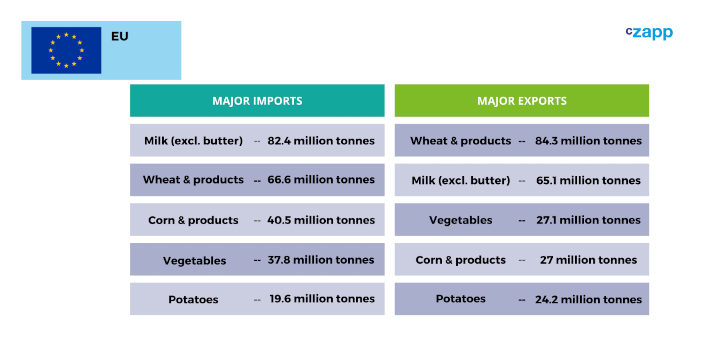
That being said, the Politico analysis shows that the current centrist coalition of the European People’s Party (EPP), Socialists and Democrats (S&D) and Renew, is likely to retain its majority in the vote.
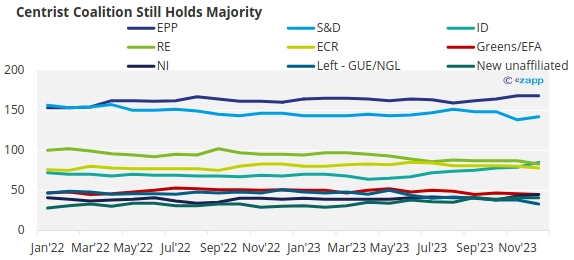
Source: Politico
India
Incumbent prime minister Narendra Modi is likely to win in India’s upcoming general election, meaning more of the same policies. This may be a concern for the international community given the campaign of protectionist food policies that have been rolled out in the past few years.
The Indian government has imposed restrictions on exports of rice, sugar and wheat, and most recently the country imposed an export ban on onions until 2024. India is a major supplier of grains to the world market and moves to restrict exports have exacerbated higher food prices.
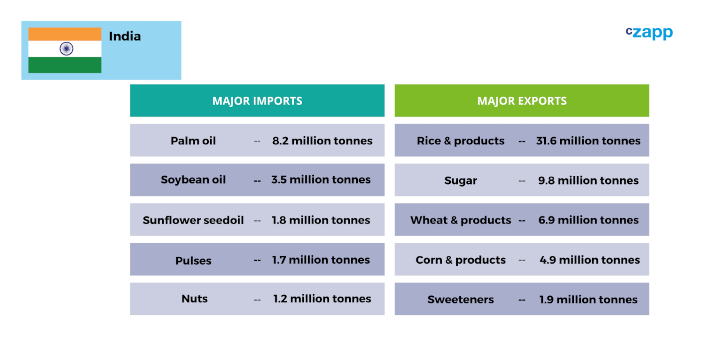
Given that agriculture accounts for about 20% of India’s GDP, it is hardly surprising that all candidates have been rolling out ambitious promises for the sector. Promises include loan waivers, free electricity and higher minimum support prices for crops.
India is also likely to profit from supply chain diversification away from China and could become major export hub – but protectionist policies could limit the benefits.
Pakistan
There are three major parties in the election, one of which will be the former prime minister Imran Khan’s Pakistan Tehreek-e-Insaf (PTI). Another former prime minister, Nawaz Sharif, will run with the Pakistan Muslim League (PML), while former foreign minister Bilawal Bhutto Zardari, will lead the Pakistan People’s Party (PPP).
The most recent party to hold power was the PML, led by Shehbaz Sharif, but the parliament was dissolved in August and now independent caretaker prime minister Anwaar ul Haq Kakar is overseeing the election process.
The agriculture sector in Pakistan contributes about 19.2% to the country’s GDP and employs just under 40% of the population so pledges related to the sector are likely to take centre stage next year. The country’s most important crops are sugar, wheat, corn, rice and cotton.
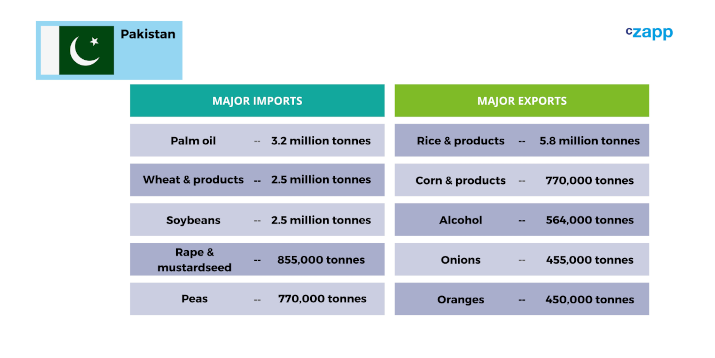
In fact, Pakistan is one of the world’s largest rice exporters, selling over 5.8 million tonnes to the global market in 2021.
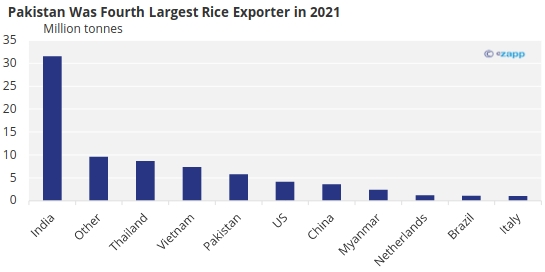
Source: FAOSTAT
The current caretaker government imposed restrictions on sugar exports late last year. The Minister for Commerce & Industries Dr Gohar Ejaz said that exports would be limited until the end of the season so that the country could take full advantage of domestic production instead of selling sugar and needing to buy it later at a premium.
If Pakistan’s new government also chooses to restrict rice exports, this could add to the pressure on global supply and push up prices, which could be disastrous for developing countries. Whichever party is elected will have to tackle the country’s debt crisis, climate impacts on agricultural land and rising food and energy prices. However, it is still unclear which policies may be used to do so.
Mexico
In 2024, current Mexico City mayor Claudia Sheinbaum of the Morena party will run against Xochitl Galvez, who is running for the National Action Party (PAN). Sheinbaum is a protégé of current President Andres Manual Lopez Obrador, also known as AMLO. Primary polling indicates that Sheinbaum is leading the race.
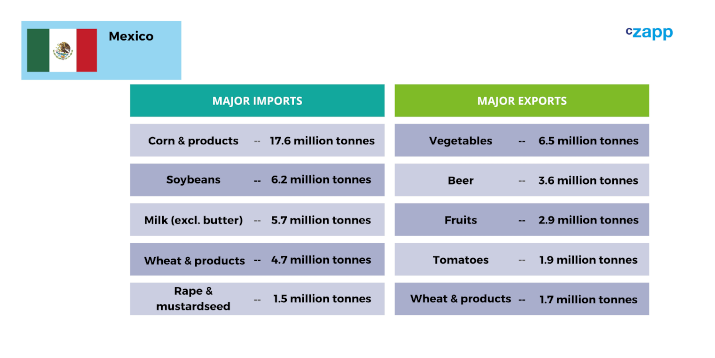
One of the biggest controversies in the past few years has been AMLO’s ban on GM corn for human consumption, which has put him at odds with the US. Mexico is a major corn importer and it sources much of its corn from the US. However, most corn in the US is genetically modified.
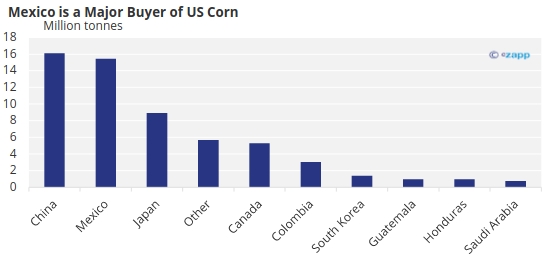
Source: UN Comtrade
AMLO’s rule has been characterised largely by a desire to strengthen Mexican sovereignty over its resources, including the agriculture sector. It is likely that a Sheinbaum government would see an extension of these policies.
Indonesia
There are three main candidates up for election in Indonesia this year: Anies Baswedan of the Coalition of Change for Unity ticket, Prabowo Subianto of the Advanced Indonesia Coalition ticket and Ganjar Pranowo of the Ganjar Pronowo EPPC ticket.
The next president will have to deal with environmental sustainability – a huge issue in Indonesia since 4.5% of its GDP is linked with the production of palm oil. Both Prabowo and Ganjar have laid out similar policies that aim to continue the development of rural areas, indicating that palm oil production would not be jeopardised.
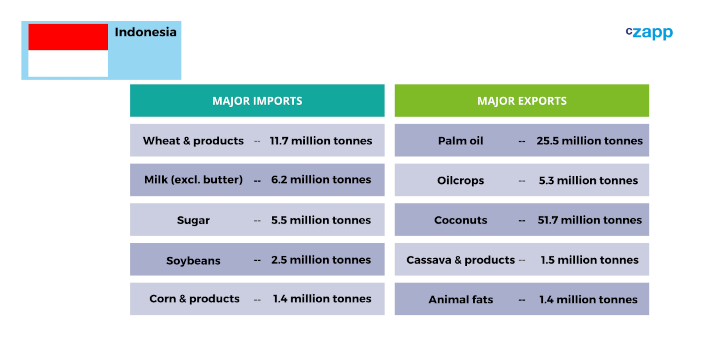
Russia
Russia will hold elections in March, but Vladimir Putin is expected to run again given that he orchestrated a set of constitutional reforms in 2020 that would allow him to seek another term. It is therefore unlikely that any policies will change, and the war in Ukraine is likely to continue.
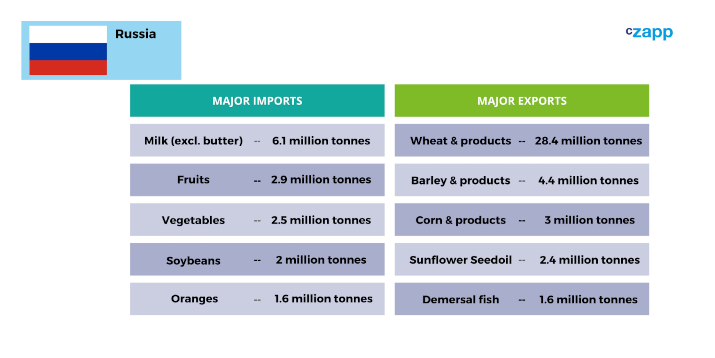
Ukraine
According to the constitution, the next election in Ukraine will be held at the end of March but since martial law is now in place due to the Russian invasion, no elections can be held. If martial law is lifted before March, there could be an election, but a recent poll found that 80% of Ukrainians don’t want an election until the war is over.
It is therefore unlikely that an election will be held and current president Volodymyr Zelenskyy is likely to remain in power, with no change to food-related policies.
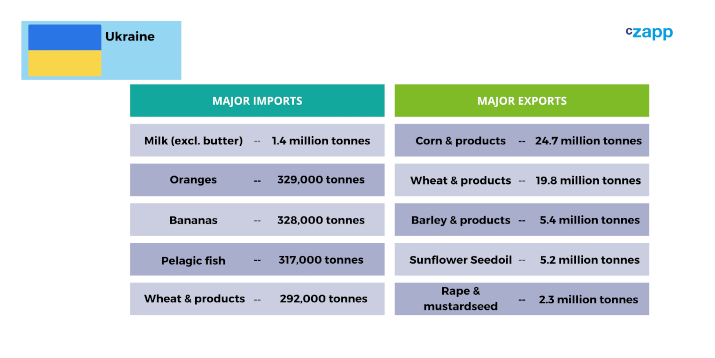
Taiwan
Taiwan will head to the polls on January 13 for its general election. The ruling Democratic Progressive Party (DPP) will face off against the Taiwan People’s Party (TPP). Polling in third place is the Kuomintang party, while billionaire businessman Terry Gou, running as an independent, recently withdrew his bid.
Taiwan’s election is unlikely to impact food supply chains directly. Taiwan is not a major importer but does import several important food products, such as cassava, corn, soybeans and wheat. This is unlikely to change regardless of which candidate wins in the election.
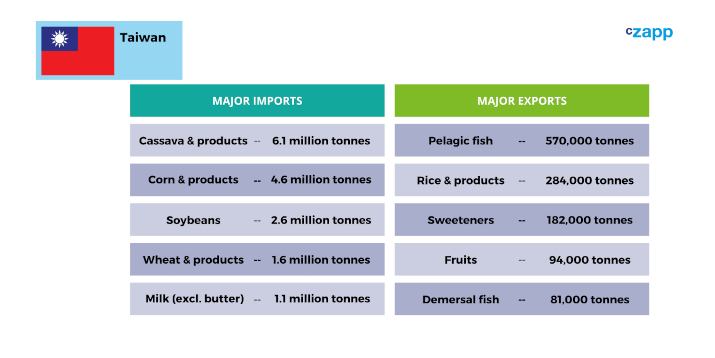
The biggest impact from the election is likely to be indirect. The DPP is currently polling in first place but is staunchly anti-China. Kuomintang and the TPP, however, are pro-China and recently attempted to form a coalition. Efforts fell apart though and it looks more likely that the DPP will head to victory, which is likely to heighten tensions with mainland China.
Iran
Iran will hold elections in March but there is little likelihood of sweeping change to policies. The country is a food importer and exports very little of its produce to global markets.
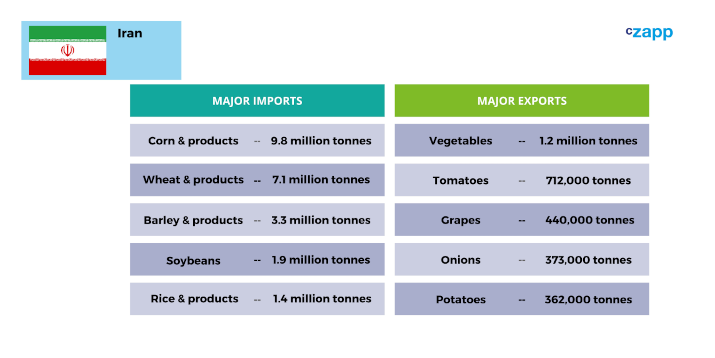
South Korea
In April, incumbent president Yoon Suk Yeol of the conservative People Power Party (PPP) will face the Democratic Party of Korea. Again, South Korea doesn’t play a major part in food export markets so any new food policies implemented by the winner are unlikely to have a wider effect.
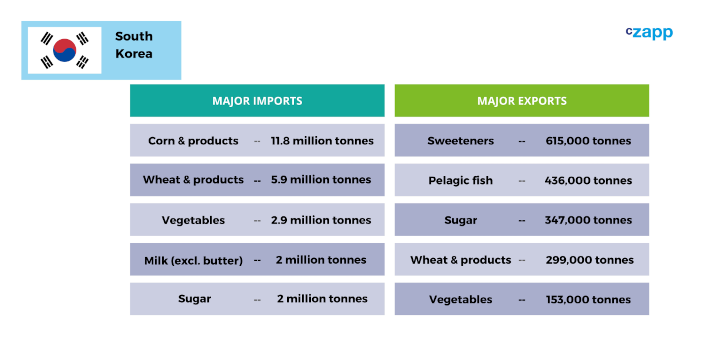
Venezuela
A Presidential Election will take place in Venezuela this year, but the outcome of the election should be very limited. Venezuela is not highly involved in global trade and the current president Nicolas Maduro is likely to win the vote after opposition candidate Maria Corina Machado was disqualified.
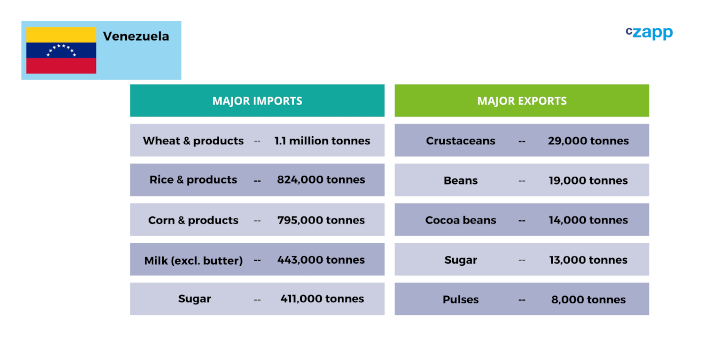
South Africa
South Africa will go to the polls in 2024 to elect a new National Assembly, plus a legislature in each province. The main policy issue will likely be the country’s energy crisis that has led to rolling blackouts due to issues at state utility company Eskom. It is unlikely that there will be any sweeping changes to food policy.
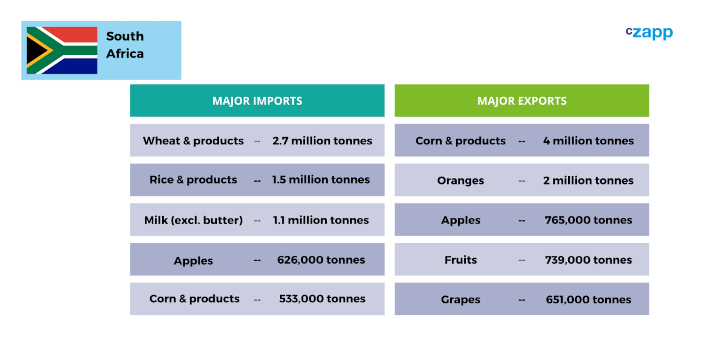
Algeria
Next December, the incumbent president Abdelmadjid Tebboune will seek re-election. This year, Algeria has benefitted from increased gas revenues as Europe attempts to reposition its supply chain away from Russia. However, the country has still suffered from the same high inflation as the rest of the world.
In terms of the food supply chain, the results of the elections are unlikely to cause great upheaval. Algeria has a strategic relationship with Russia, which supplies much of its wheat and this is unlikely to change even if a new government takes power.
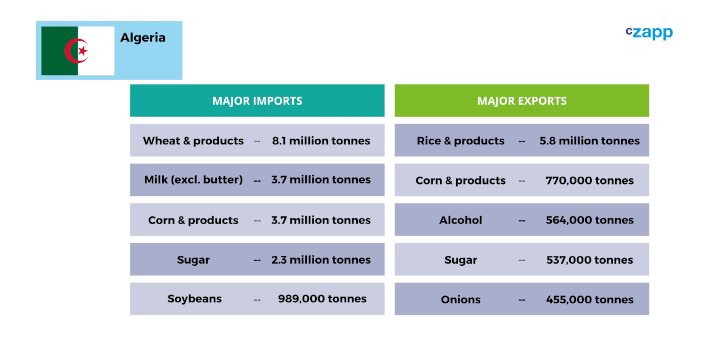
UK
Although no date has been set yet, the UK will head to the polls no later than January 2025 and the opposition Labour party is widely expected to sweep to victory. The party has pledged to support sustainable UK farming and prioritise animal welfare.
After its exit from the EU due to Brexit, the UK has been forming trade pacts further afield, but farmers have been concerned about lower quality standard foods being imported. Labour has pledged to protect British standards and to ensure that 50% of all food purchased by the public sector is produced locally.
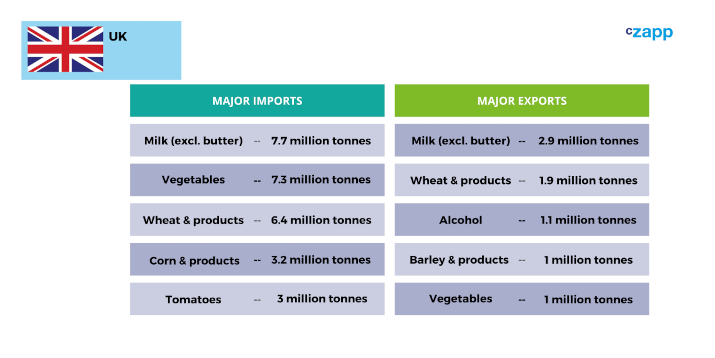
The impacts of the UK elections on the food supply chain are likely to be limited largely to domestic policy. While there may be stricter import standards, the amount of food the UK imports is unlikely to change.


